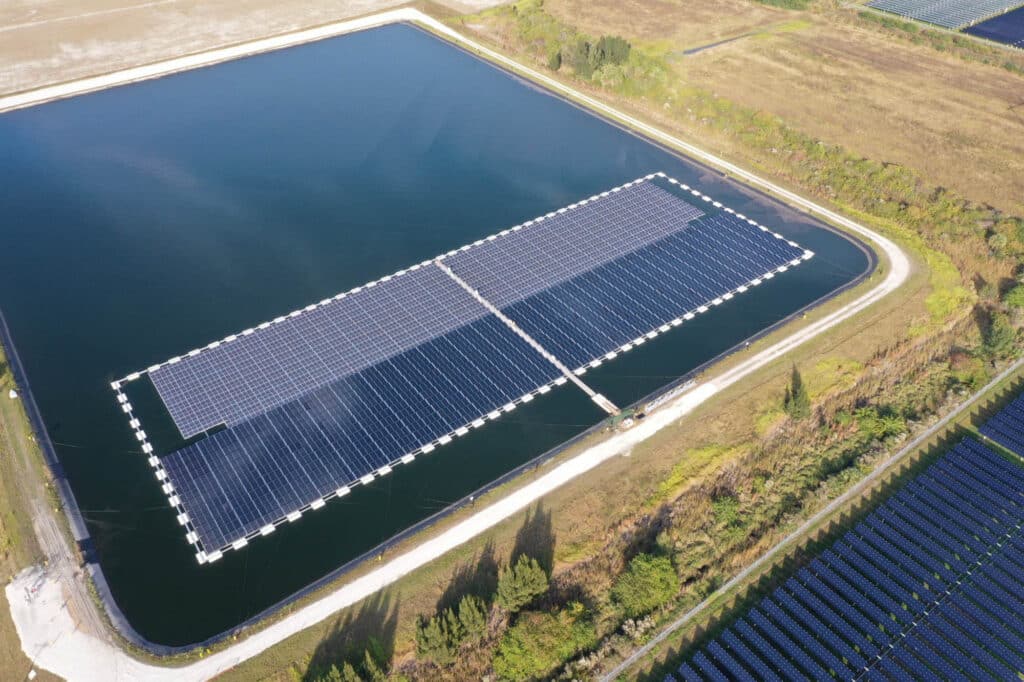In the expanding landscape of the digital world, data centers stand as the critical infrastructure fueling our online lives. These energy-hungry facilities require massive and reliable data center power solutions, making energy efficiency and sustainability essential. As the demand for data processing continues to climb, innovative power solutions are no longer a luxury but a necessity. Enter floating solar systems, offering a strategic advantage, particularly when co-located on cooling ponds often associated with large-scale data center operations.
Let’s explore why this synergy makes perfect sense, especially in key data center hubs across the United States.
The Power Challenge Facing Modern Data Centers
Data centers, by their very nature, consume tremendous amounts of electricity to power servers, networking equipment, and cooling systems. This energy consumption translates to significant operational costs and a substantial carbon footprint. Finding sustainable and cost-effective data center power solutions is a constant challenge for operators, particularly in high-density areas.
Modern facilities require sophisticated data center power distribution systems to manage the complex electrical demands of today’s computing infrastructure. The challenge becomes even more pressing as artificial intelligence and machine learning workloads drive energy consumption to new heights.
Key Data Center Markets Driving Innovation
Northern Virginia (“Data Center Alley”)
Loudoun County and Prince William County, home to a massive concentration of data centers, face increasing pressure on the local power grid.
Dallas-Fort Worth, Texas
Cities like Plano, Allen, Frisco, and Fort Worth are experiencing rapid data center growth, demanding innovative data center power solutions.
Phoenix, Arizona
Mesa, Goodyear, and Chandler grapple with high temperatures, making efficient cooling and reliable power essential.
Atlanta, Georgia
Douglas County and Fulton County are emerging as significant locations, necessitating sustainable energy strategies.
Portland, Oregon
Hillsboro and Beaverton, known for their tech industry, are also seeing increased development.
Salt Lake City, Utah
Bluffdale and West Jordan are attracting data center investments, highlighting the need for advanced power solutions.
Chicago, Illinois
Elk Grove Village and Aurora benefit from strong infrastructure but require sustainable energy for their growing digital footprint.
Las Vegas/Reno, Nevada
Sparks and Reno face unique environmental challenges, making efficient data center power distribution essential.
Denver, Colorado
Aurora and Colorado Springs are witnessing data center expansion in a region focused on sustainability.
Columbus, Ohio
New Albany, with significant investments from Meta, Google, and Amazon, underscores the importance of reliable and green power.
How Floating Solar Systems Transform Data Center Operations
Floating solar arrays offer an ideal partnership for data centers, particularly those using cooling ponds, by leveraging the surface of water bodies for energy generation. Locating FPV systems directly on a data center’s cooling pond significantly reduces the distance electricity needs to travel or eliminates the need for costly transmission line upgrades.
Proximity Advantages for Power Distribution
The concept of localized power supply minimizes transmission losses, leading to greater energy efficiency and cost savings. This direct approach to data center power distribution eliminates many of the inefficiencies associated with long-distance power transmission.
Land Efficiency Benefits
In densely populated areas where land comes at a premium, utilizing the surface of a cooling pond for solar energy generation avoids the need for valuable real estate. This is particularly advantageous in regions like Northern Virginia or the Dallas-Fort Worth metroplex.
Temperature Optimization
The cooling effect of the water beneath the solar panels can actually improve their efficiency. Lower operating temperatures lead to better energy generation compared to land-based systems, a significant advantage in hot climates like Phoenix or Dallas.
Environmental and Operational Benefits
Water Conservation
Floating solar systems can help reduce water evaporation from the cooling ponds by shading the surface. This is a valuable benefit in water-scarce regions like Arizona or Nevada.
Grid Resilience
On-site power generation through FPV can boost the resilience of a data center’s power supply, reducing reliance solely on the external grid. This is particularly important in areas prone to grid instability or extreme weather events.
Sustainability Leadership
Embracing floating solar demonstrates a strong commitment to sustainability, aligning with the growing environmental consciousness of businesses. This can be a significant advantage for data centers looking to attract environmentally conscious clients and meet regulatory requirements.
Implementation Considerations
While the benefits of floating solar on cooling ponds are significant, there are factors to consider, such as initial investment costs, potential environmental impacts on the aquatic ecosystem (which can be mitigated with careful design and monitoring), and the need for specialized expertise in installation and maintenance.
Proper planning for data center power distribution integration is essential to maximize the benefits of floating solar installations. This includes coordinating with existing electrical infrastructure and ensuring seamless integration with backup power systems.
The Future of Data Center Energy Solutions
As technology advances and the cost of solar energy continues to decline, floating solar presents a powerful and increasingly viable solution for data centers seeking reliable, sustainable, and cost-effective data center power solutions. By strategically leveraging the synergy between cooling ponds and floating solar arrays, data center operators in key hubs across the nation can pave the way for a more resilient, efficient, and environmentally responsible digital future.
The potential is significant, and the time to explore this innovative power solution is now. Modern data center power distribution systems can seamlessly integrate floating solar arrays, creating a more sustainable and economically viable approach to data center operations.
Ready to explore floating solar solutions for your data center? Contact AccuSolar to learn more about our innovative floating solar systems and how they can transform your facility’s energy profile.





